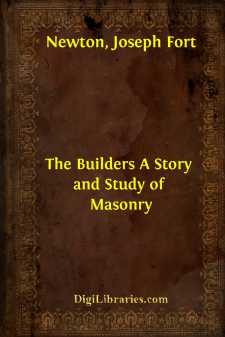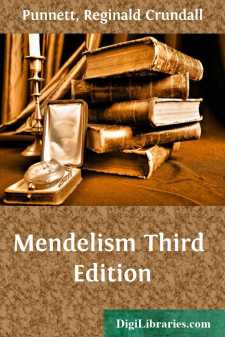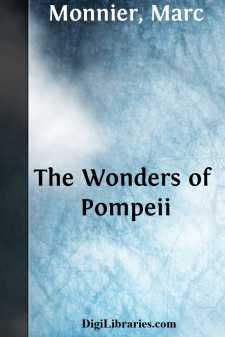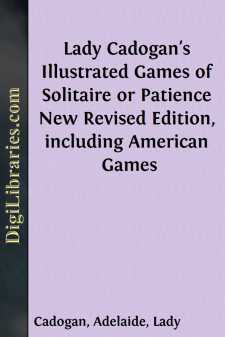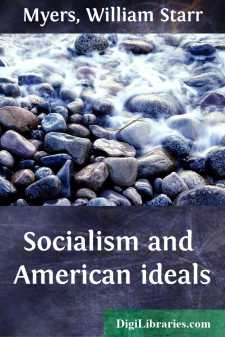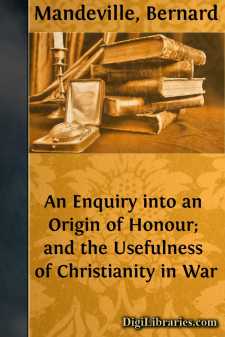Non-Classifiable
- Non-Classifiable 1768
Non-Classifiable Books
Sort by:
THE ANTEROOM Fourteen years ago the writer of this volume entered the temple of Freemasonry, and that date stands out in memory as one of the most significant days in his life. There was a little spread on the night of his raising, and, as is the custom, the candidate was asked to give his impressions of the Order. Among other things, he made request to know if there was any little book which would...
more...
PREFACE A few years ago I published a short sketch of Mendel's discovery in heredity, and of some of the recent experiments which had arisen from it. Since then progress in these studies has been rapid, and the present account, though bearing the same title, has been completely rewritten. A number of illustrations have been added, and here I may acknowledge my indebtedness to Miss Wheldale for the...
more...
by:
Marc Monnier
I. THE EXHUMED CITY. The Antique Landscape—The History of Pompeii Before and After its Destruction.—How it was Buried and Exhumed.—Winkelmann as a Prophet.—The Excavations in the Reign of Charles III., of Murat, and of Ferdinand.—The Excavations as they now are.—Signor Fiorelli.—Appearance of the Ruins.—What is and What is not Found There. A railroad runs from Naples to Pompeii. Are you...
more...
VILLAGE IMPROVEMENTS. It may be because the newness of our country and the fragile character of our early structures have prevented the accumulation of inferior, ugly, and uncomfortable houses, as the nucleus around which later building has crystallized; it may be from circumstances which have prevented the isolated residence of the better classes of our people; or it may be the result of accident....
more...
by:
Adelaide Cadogan
EXPLANATION OF THE TABLEAUX The blank spaces show where the foundation cards should be played during the deal. EXPLANATION OF TERMS Available cards. Those that are not "blocked" by other cards, i.e., not forbidden by the particular rules of each game, to be used. Released cards. Those which, by the removal of the cards that blocked them, have now become available. Suitable cards. Those whose...
more...
One might write continuously while he lived for or against Socialism and yet at the end of a long and misspent life have said nothing that others had not said before him. Nevertheless, new generations come on and have to learn about Socialism as they learn about other things, for there always have been and always will be Socialists. It is a habit of mind which becomes fixed in a certain number of each...
more...
I. By that which is self—caused, I mean that of which the essence involves existence, or that of which the nature is only conceivable as existent. II. A thing is called finite after its kind, when it can be limited by another thing of the same nature; for instance, a body is called finite because we always conceive another greater body. So, also, a thought is limited by another thought, but a body is...
more...
INTRODUCTION It was about a decade ago that Professor E.R.A. Seligman of Columbia University published his valuable work on the "Economic Interpretation of History," which gave a great impetus to the study, by historians, of the economic influences upon political and social development. Professor Seligman showed conclusively that one of the most potent forces in the growth of civilization has...
more...
The growing interest in the popular tales of Europe has led me to believe that a selection from those of Italy would be entertaining to the general reader, and valuable to the student of comparative folk-lore. The stories which, with but few exceptions, are here presented for the first time to the English reader, have been translated from recent Italian collections, and are given exactly as they were...
more...
I take it for granted, that a Christian is not bound to believe any Thing to have been of Divine Institution, that has not been declared to be such in Holy Writ. Yet great Offence has been taken at an Essay, in the First Part of the Fable of the Bees, call'd An Enquiry into the Origin of Moral Virtue; notwithstanding the great Caution it is wrote with. Since then, it is thought Criminal to...
more...


